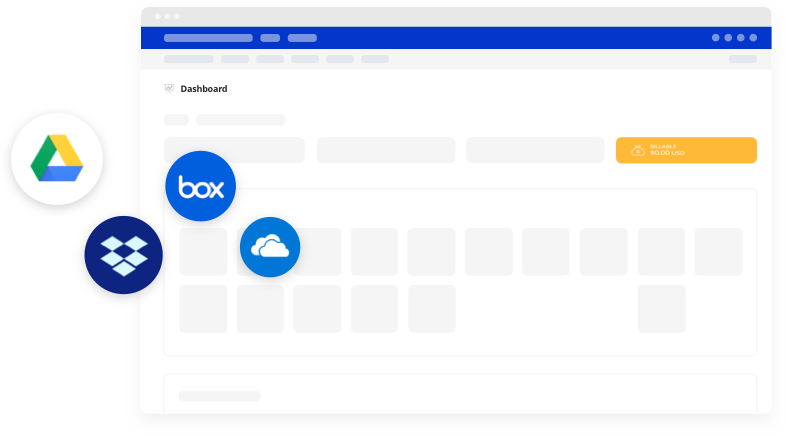As an attorney, you know that there are tons of data points that come with each of your clients — whether it pertains to contact information, employment details, and even referral source. It’s easy to become overwhelmed by it all. However, effectively managing your client’s key information is essential to client satisfaction, building a strong attorney-client relationship, and providing personalized solutions.
Investing in the customer experience increases client retention and word-of-mouth business, ultimately enabling firms to generate more revenue. A legal customer relationship management solution or CRM is one of the best resources a law firm can use to accurately capture and track client information. The right CRM solution creates a foundation that influences the efficiency of almost every aspect of your practice.
This blog post will further explain what a legal CRM is, why it is essential and what firms should consider before committing to software.
What is Legal CRM Software?
A CRM is an evolution of collecting customer information through note-taking into sophisticated software. Legal client relationship management (CRM) is software that gathers client data and assists in managing different business development functions, including client intake, marketing, scheduling, and follow-up, or even revenue tracking.
Keeping your CRM in one place, allows you to easily automate these processes. Legal practice management platforms, like PracticePanther, host their legal CRM natively. This means from client intake to case matter closed, your firm can track key information that allows you to track and maintain each client relationship.

Why Does My Law Firm Need a Legal CRM?
Often referred to as a second brain: when used consistently, a legal CRM can hold relevant details on clients that one would generally forget. Since most law firm clients come from word-of-mouth, nurturing relationships are increasingly important to foster additional referrals from new clients. The various functionalities of a CRM will consequently assist in nurturing relationships. Below are some benefits of incorporating this software into practice.
Automated Client Intake
From an organization standpoint, a CRM will contain data on prospective and current clients. This information can vary from company size to job title to even more personalized details that are entered manually. By operating in a single interface accessible across the firm, attorneys and staff can get information quickly instead of searching multiple databases and folders.
A great CRM starts with great intake. PracticePanther offer automated client intake forms, that allow firms to quickly capture client information. Typically, this process was done in a spreadsheet or through handwritten notes. Both of these traditional methods can lead to unorganization, human error, or lack of key client information.
Client demands have shifted and the likelihood that they will retain your law firm’s business is decided in just a few seconds from browsing online. The onboarding process sets the tone for the attorney-client relationship. Making these processes digital will showcase that your firm values modern processes which enhance the client experience.
Streamlined Law Firm Marketing
It is common to see smaller firms initially capture client information in a spreadsheet before moving into more sophisticated software. Using CRM software includes additional integrations optimized for marketing and sales lead captures.
For example, when building a website, a CRM will generally integrate into lead capture forms where marketing drip sequences can be built out to nurture and warm up the leads.
This is another area where an automated intake process can come into play. PracticePanther makes has the ability to create branded intake forms with fields to collect prospective client information. The intake forms can even be embedded into your website so the form can be accessed from anywhere.
Afterward, the CRM can track the client’s interactions through the website. This can include their interactions with an online form or a piece of content on the website. These key insights will help automate the firms’ contact management processes and tailor the marketing workflows to the client’s needs.
You can take this process one step further with custom tags to track where leads originated from. These tags can be named by campaign or location. For example, if your firm is focused on generating more LinkedIn leads, you can create tags labeled “July LinkedIn lead campaign.” You can later pull a report in PracticePanther that can be filtered to these tags. This gives your firm immediate insight into how marketing campaigns are performing in one place.

Stronger Client Relationships
Ultimately when practice is organized internally, the service delivery is much smoother. Using legal practice management tools that centralize client details will create a smoother in-take and case management experience for the client. Practice Panther’s legal CRM helps prevent communication errors with higher visibility into a contact.
Within a specific contact, you can see related matters, documents shared or sent for eSignature, or any email correspondences. Not only can your firm see this information, but you can enable the client portal and the client can have on-demand access to this information and respond to any correspondence or view documents.
PracticePanther also features 2-way business text messages to keep in touch with clients in a way that’s easier for them. Easily send event reminders, invoice payment links, or notify them of pending documents that need their signature. All of this correspondence is stored to the CRM contact so everyone in your firm has access.
By streamlining the contact management and relationships with clients, a CRM will also help reduce lost client opportunities and provide stellar customer service.
How to Choose the Best Legal CRM for My Law Firm
There are many options to choose from within the legal CRM market and key considerations to weigh when deciding on the best CRM for your firm.
Key Features of a Legal CRM
A legal CRM has various features and is designed to solve different problems. This makes it vital for law firms to identify objectives and pain points to get the most out of the software. For example, pain points could include generating more leads, enhancing customer relationships, improving client onboarding, or more accessibility for internal teams. Once the firm’s needs have been understood, it’s easier to narrow down which features are required within a CRM tool.

Integration and Compatibility with Other Software
Generally, a legal CRM will integrate with the other software used to manage your practice. This can include emails, scheduling tools, the website hosting platform, or other legal practice management software.
Another aspect to weigh is ensuring that the legal CRM is compatible with pre-existing business applications. Along with a native CRM, PracticePanther integrates with several applications to allow law firms to truly keep everything to manage your business in one place.
Training and Support
The learning curve associated with adopting new legal technology can be lessened with proper training and support. Before purchasing software, firms should consider if the vendor has an onboarding program or onboarding tools and if the vendor has a customer support team that can assist with any issues.
PracticePanther’s team guides your firm through the onboarding process with the training and support you need. There is also a support library with feature videos to help troubleshoot your problems and a dedicated support team to help with more detailed solutions.
Legal CRM Pricing
The breakdown of the price will generally include the initial purchase and installations, monthly subscriptions, and other additional training and support. However, having an all-in-one solution that houses your CRM natively can drastically reduce costs. A CRM subscription from a third party can be expensive and you risk the software not integrating with others areas of your practice.
Why Your Law Firm Needs a Legal CRM
A legal CRM is one of the core tools any successful practice should use. Beyond the increased client experience, this software will reduce the number of non-billable hours an attorney works by automating administrative tasks. Incorporating this software into a firm’s practice will ultimately allow attorneys to dedicate time to growing their practice and servicing clients.
If you’re ready to get organized and gain higher visibility into the inner workings of your firm, you can schedule a custom demo of PracticePanther to see the all-in-one platform in action.





